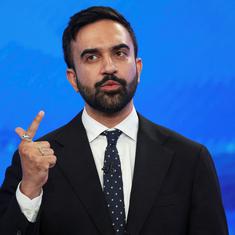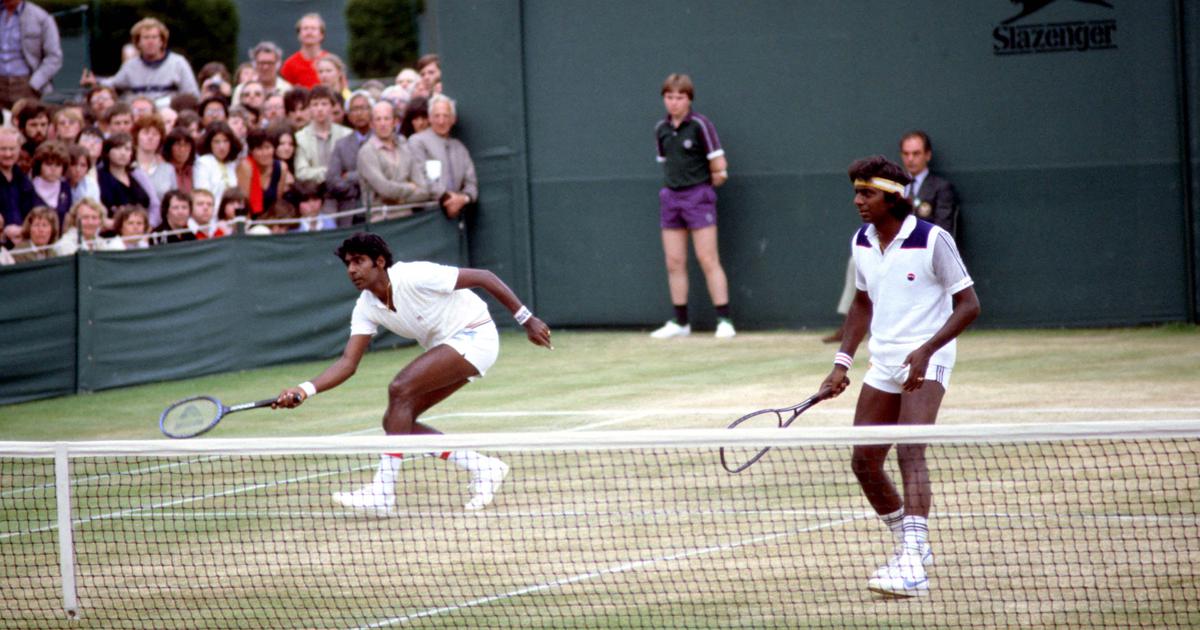In March 1987, New Delhi hosted one of the most thrilling Davis Cup ties of all time. The odds were against India. It was down two matches to one against the visiting Argentines, and its ageing superstar Vijay Amritraj was facing match point in the fourth set of the fourth match against Martin Jaite, who had defeated German sensation Boris Becker a year earlier.
Somehow, Amritraj, 33, mustered enough calm and strength to overcome his highly favoured 23-year-old opponent to win the fourth set 8-6 and then the fifth set and match. After that, Ramesh Krishnan took care of business, clinching India one of its most famous tennis victories and sending it into the quarterfinals. But where there should have been unqualified joy, there was some anxiety.
India’s next adversary was Israel.
At the time, India was one of the staunchest supporters of the Palestinian cause and many Indians opposed letting Israelis take part in the Davis Cup in India. The government too was unsure. Apart from its principled political stand on the Palestinian cause and its ties with the Arab world, the administration was worried about maintaining law and order in Delhi.
In the past, India had taken a principled stand even when it came at a heavy cost. In 1974, it had reached the final of the Davis Cup but forfeited the match – and ceded the trophy – to protest against its opponent South Africa’s repressive Apartheid policies. Should it do the same? That was the question.
Amritraj summed up India’s dilemma when he told reporters: “As soon as we beat Argentina, everybody thought there was no way [the tie against Israel] was going to be played. It was kind of disheartening. As soon as you have a big win, everybody keeps writing, ‘Well, too bad. We’ve come up against Israel after such a great win.’ All the world over, it was said ‘That match won’t be played.’”
Amritraj, who helped the 1974 team reach the Davis Cup final, had supported the boycott of Apartheid South Africa, saying, “It was absolutely the right decision.” But in 1987, nearing the end of his sporting career, he voiced support for India’s participation.
The government too switched its stand. Threatened with a $10,000 fine and a three-year suspension, it allowed Israeli players to travel to India to take part in the quarterfinals.
Angry protests
India had a complex relationship with Israel in its early independent years. On the one hand, it officially recognised the state of Israel in 1950, but on the other, it steadfastly refused to establish full diplomatic relations with the country. In the sporting arena, too, the boundaries could be blurry for decades.
In 1962, when Indonesia barred the Jewish state, along with Taiwan, from participating in the Jakarta Asian Games, the veteran Indian sports administrator Guru Dutt Sondhi, who founded the Asian Games Federation, was among those who spoke out against the decision. He proposed that the title “Asian Games be withdrawn from the meeting” and added, “I am fighting for a principle and I will uphold it even if I have to resign from sports for the rest of my life.”
Sondhi’s comments made him extremely unpopular in Jakarta. Angry protests broke out against him, necessitating police protection, and when the mobs attacked the Indian embassy, he was forced to flee Indonesia.
Two years later, India was one of the four participating teams when Israel hosted the Asian Cup football tournament. Israel won that competition, with India finishing second.
By the 1970s, though, India’s position hardened. Israel was not allowed to participate in the World Table Tennis Championship in Calcutta in 1975. Six years later, it was barred when the Asian Games Federation was reorganised into the Asian Olympic Council, which meant Israel could not take part in the 1982 Asian Games in Delhi. In 1986 again, India supported not letting Israel participate in the Seoul Asian Games. And the next year, it barred Israelis from competing in the World Table Tennis Championship in New Delhi.
Cold welcome
It was Vijay Amritraj who swung the needle in 1987. He convinced the Rajiv Gandhi government that the $10,000 fine and three-year suspension were too high a price for India to pay and therefore the Israeli tennis team should be allowed to participate in the Davis Cup tie in Delhi.
The Palestinian Liberation Organization, which represented the Palestinian people, protested India’s decision. Its leader Yasser Arafat made fervent appeals to not allow the tie, but it had no effect.
The Jerusalem Post claimed in July 1987 that Arafat was “concerned that the tournament could be the first move in a thawing of the chill that has characterized Israeli-Indian relations for almost 40 years”.
But this was hardly the case. India’s real motivations were well known to the Israeli authorities. “The Indians are simply afraid of the stiff punishment imposed by the Lawn Tennis Association,” Zvi Meir, director of Israel’s tennis governing body, told the Associated Press.
When the Israeli tennis players landed in India, they found the welcome less than warm. The players were given restricted visas that were valid for two weeks and had to practice on grass courts in Britain before coming to India. India also did not allow Israeli fans to come and watch the matches in Delhi. Even those Israelis who managed to get Indian visas were denied entry in the lead-up to the tie.
Fourteen Israeli tourists who were on a tour of the Far East were forced to spend a night in the transit lounge of the Delhi airport as their visas were revoked and they were denied entry a week ahead of the match. Israel’s Foreign Minister Shimon Peres called the action “scandalous”.
Another group of 13 Israelis – comprising sports journalists and fans – chose not to attend the Davis Cup as their local contact in Delhi told them that India’s Foreigners Regional Registration Office was withholding landing permits for Israeli groups, pending a blanket approval from the Home Ministry.
Heightened security
Security was stepped up across Delhi before the Davis Cup quarterfinals. The authorities were worried about potential attacks by Palestinians as well as student protests. At a time when this was not the norm, spectators were frisked at the stadium and had to pass metal detectors.
On the same weekend that India was playing the quarterfinals against Israel, the United States was playing West Germany in a relegation tie. Boris Becker complained about the “pro-American frenzy” in Hartford, Connecticut, and how his teammates felt like “political prisoners in a foreign court”.
The Los Angeles Times compared the atmosphere in Hartford with that in India. “Boom Boom, you should have seen New Delhi,” the newspaper said. “At New Delhi, site of the India-Israel Davis Cup quarterfinal, there were stun guns, sub-machine guns, sharpshooters posted on buildings, and blockades at every entrance.”
There was, however, no tension on the court, at least for the Indian players. India won the tie 4-0 with its players not losing even a single set. Israel was counting on Amos Mansdorf, but the 21-year-old was no match for Krishnan or Amritraj.
“They never really knew how good I could, or had, played,” Amritraj told reporters after the match. “Anand [his brother and doubles partner] said to me, ‘You are from a different generation, so the young guys don’t know you.’ He [Mansdorf] was probably too young to have even been a ballboy at one of my matches.”
While there were protests by students in the streets of Delhi, the crowds in the stadium were pleasant. “They never let us forget it was still a tennis match,” Amritraj said. “Our practice was not hampered. The crowds were no different during the match.”
In October, India defeated the heavily-favoured Australia in Sydney and made it to the final in Gothenburg. Unfortunately, their opponent was a strong Swedish team featuring Mats Willander and Anders Järryd. India lost the final 5-0.
Meanwhile, the relations between India and Israel remained patchy. In 1988, India was scheduled to play against Israel in Israel in the relegation round of the Davis Cup but the Indian government decided to boycott the tie because of “Israel’s repression of Palestinian protests in the occupied territories”. It made the decision after at least 100 Palestinians protestors were killed by Israeli troops in 1987-’88.
Despite appeals by the Israel foreign ministry, which said it was the country’s “longstanding policy” that “sports and politics should not be mixed”, India went ahead with the boycott and got relegated. It would take the country another five years to get back to the elite World Group, when a new sensation by the name of Leander Paes powered India to an unlikely semifinal run by defeating Switzerland and France.
India and Israel established full diplomatic relations on January 29, 1992.
Ajay Kamalakaran is a writer, primarily based in Mumbai. His Twitter handle is @ajaykamalakaran.










